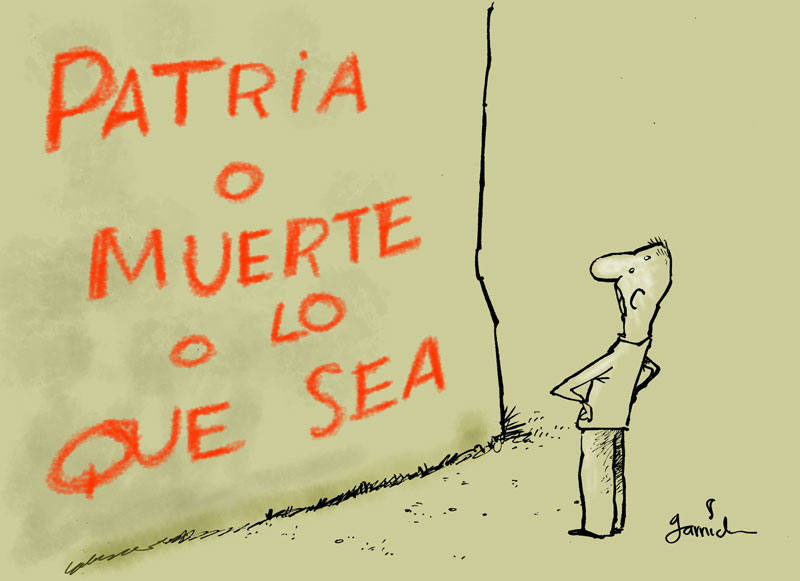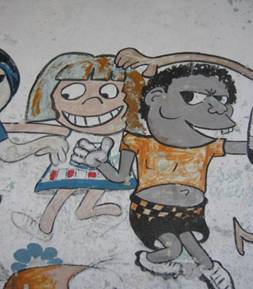The XCIII Plenary of the National Council of the Workers Central Union of Cuba (CTC) that recently met under the chairmanship of the Second Secretary of the Communist Party of Cuba (PCC), agreed to postpone the celebration of its XX Congress, create an Organizing Committee and appoint Ulises Guilarte de Nacimiento to its leadership.
The postponement of the XX Congress was made so that the newly created Organizing Committee would have more time to organize the event, which has a pending discussion on the Draft of the Labor Code Bill and on the Congress Rules document.
Considering that another Plenary of the National Council of the CTC in which the progress of the organization efforts for the Congress were discussed took place just a month ago, the following questions arise: Why wasn’t the date for the Congress proposed at the time? Why was Carmen Rosa López ratified at the front of the CTC until the celebration of the XX Congress? And why wasn’t the Organizing Committee created during the time of the convening or last month at the Plenary?
The answers seem to be related to the difficulties encountered in the preparatory meetings. If so, doubts point to a poor preparation and to the inability of the Second Secretary of the CTC to reach the goals set by the Communist Party (PCC). This assumption is based on the fact that Carmen Rosa López had been appointed as the head of the PCC until the celebration of the event and had been elected Member of the State Council, which indicated that she was going to be “the chosen one” as Secretary General in the XX Congress. However, surprisingly, she had just been replaced by Ulises Guilarte de Nacimiento, who was the Secretary General of the PCC in the Province of Artemisa two weeks ago.
The discussion topics, according to the preparatory meetings of the XX Congress, will be related to the economy and represent an unavoidable duty for the CTC and its unions to achieve the conscious mobilization and participation of all workers in the fulfillment of the economic and social policies that were passed in the VI Congress.
Nonetheless, in the preparatory meetings the inadequacies that conspire against what the PCC expects from the union movement were highlighted. By that I mean keeping the CTC as the only labor union under the control of the PCC to ensure support for the implementation of the recent reform Guidelines; for such purpose it would be necessary to enroll all workers under the same union, the CTC, particularly those self-employed from the private sector, who would tend to grow and provide the strength without which reaching the expected results would be impossible.
Some of the criteria expressed during the process shed light on what happened. Salvador Valdés Mesa explained in Matanzas, on March 8th, that even when retirees, state and non-state affiliates, represent three sources of affiliation with different interests, it is the self-employed who are demanding special attention because of the novelty they represent to the union movement. Then later that month, in the report to the XCII Plenary, Valdés emphasized in the shortcomings faced in the functioning of the organization, in the affiliation of workers and he made a call to combat crime, illegalities and to perfect the workers’ guard service.
Meanwhile in an interview published in Granma on April 27th, Carmen Rosa López said, “We still frequently find in the collective convening of workers that they have not been affiliated because of the shortcomings of our work,” and she also said that in all of the questionnaires and assessments completed this year the statements from the assembly members make reference to wages; which shows that the goals set took a different path from that of the workers’ concerns.
The recurring concerns expressed by the workers show their non-recognition of the unions as representatives of their interests, especially after the statement made by the Workers Central Union (CTC) in September of 2010 in favor of the layoffs, a measure that directly affected workers and their families. The statement said: Our State cannot nor should it continue to sponsor companies, institutions of production and services that are budgeted with inflated payrolls and result in losses that drag down the economy, which is counterproductive, generates bad habits, and distorts the codes of conduct of workers.
To summarize, the main goal of the Congress is to emphasize the performance that is expected from workers by the PCC in the implementation of the Guidelines for reform, not to address their particular problems, such as the insufficient wages and pensions in relation to the cost of living, among others, which has led Cubans to survive on the fringes of the law turning their backs on the so-called ideology while creating a negative attitude that hinders the realization of any social project.
We have to remember that unions in Cuba emerged to defend the interests of workers when paid work began replacing slave labor; that the labor movement became widespread with the General Law of Associations of 1888 and then with freedoms and rights recognized in the Constitution of 1901; that it showed its strength with the founding of the National Confederation of Workers of Cuba in 1925 and with a general strike in 1933 that toppled Gerardo Machado’s regime; that it achieved the passing of a number of labor laws, including the most important in Cuban labor legislation — Decree 798 of 1938 — which was subsequently endorsed in the Constitution of the Republic; that this development led to the birth of the CTC in 1939; and that joint committees were created to set a minimum wage standard, the terms to the right of collective bargaining and other measures in line with the established by the International Labor Organization.
Therefore, unions became an important sector of Cuba’s civil society to the point that in 1945 the CTC became the second largest trade union in the region with half a million members.
The takeaway is that workers’ participation in programs from the State or a political party, if it takes place, must be based on the interests, needs and decisions of workers themselves, a vital premise to the defense of their own interests.
Therefore, the postponement of the date of the Congress, from November of this year to the first trimester of 2014, has its roots in the conversion of the CTC into an auxiliary organization to the goals of the PCC, resulting in the loss of its independence and leading to the distortion of its original purpose. It is a situation beyond the capabilities of Salvador Valdés Mesa, Carmen Rosa Lópeza, Ulises Guilarte de Nacimiento or any other individual appointed to the leadership of Cuban labor unionism.
The only way out, which depends on a political will so far nonexistent, is not in changing political figures or in modifying documents pending for discussion, it is in the freedom of association. This way the PCC could keep the CTC as an auxiliary organization and allow those workers who do not want to be CTC members to form other labor unions and freely join them. This would also be a response to the remarks and recommendations that were given to Cuba in a recent evaluation by the Human Rights Council of the United Nations.
Published in Diario de Cuba
Translated by Chabeli
3 June 2013















